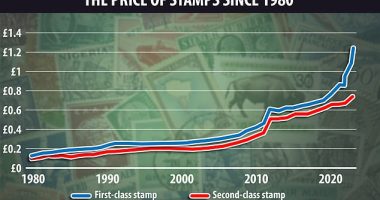THIS week, a mini-budget setting out details of help for millions of households amid the cost-of-living crisis is to be delivered.
It will be announced in the House of Commons on Friday (September 23), by the Chancellor Kwasi Kwarteng.
The mini-budget is part of PM Liz Truss‘ plans to grow the economy and tackle soaring inflation
It comes after the PM announced a package to tackle sky-high energy bills and ease the cost of living crisis.
It focused on capping prices and boosting domestic energy supplies.
Under the energy price guarantee, bills for the average household will go no higher than £2,500 at any point over the next two years.
It will save a typical home around £1,000 from October 1, when the current consumer price cap had been set to soar, according to official estimates.
Under the energy price guarantee, bills for the average household will go no higher than £2,500 at any point over the next two years.
Here are the measures that could be announced during the mini-budget announcement.
£250 tax cut
Squeezed British workers could bank an extra £250 a year if the basic rate of income tax is cut as expected.
Most read in Money
Chancellor Kwasi Kwarteng is considering bringing forward his predecessor’s proposal to knock off a penny – from 20p to 19p in the pound – in his emergency mini budget next week.
Rishi Sunak previously said this would take effect in two years, but Prime Minister Liz Truss is said to want to fast-track the move as part of the “punchy” £30billion pack of support measures, the Daily Mail reports.
It would mean those on an average annual income – £38,131 for a full-time role in 2021 – could get a £255 boost, without factoring in National Insurance.
Tax is only paid on the first £12,570 earned, which leaves £25,561 to be taxed.
Under the current rate of 20 per cent, this works out at £5,112.20.
But if the basic rate of income tax is slashed from 20p to 19p in the pound, this falls to £4,856.59, meaning an additional £255.61 a year.
Those on lower incomes would still make a saving, if smaller, while anyone earning up to £50k would also benefit.
The new rate would not take immediate effect.
Health and Social Care Levy
The PM is expected to slash the Health and Social Care Levy that was brought in under the Boris Johnson administration in April.
During the Tory leadership campaign Ms Truss said she hated the national insurance hike and vowed to get rid of it.
For some people it paying the government hundreds of pounds extra a year.
On Friday it’s set to be scrapped.
Corporation Tax
A planned rise in corporation tax for April next year is likely to be binned on Friday.
The idea is that by keeping taxes lower, major companies will have more money to invest in the British economy, ultimately helping it to grow.
Energy bailout
At some point next week the PM will provide more details about the £150 billion energy bill bailout, with businesses waiting on tenterhooks for more information about how to access the desperately-needed support.
Last week, the government announced multi-billion pound package to save typical Brits £1,000 by protecting them from crippling global gas costs.
Bills were set to rise to £3,500 in October and more than £6,000 next April in a terrifying prospect for most households.
However in a mammoth intervention – which could cost more than furlough – Ms Truss is now going to cap costs from October 1, with the typical family paying no more than £2,500.
Under the plan to cap wholesale costs ministers estimate a family in a detached house will spend no more than £3,300, a semi-detached £2,650, a bungalow £2,450 and a flat £1,750.
Businesses will benefit from the scheme for just six months, but vulnerable firms could get more support.
More details on how businesses can access the help should be confirmed next week.
Surprise announcement
MPs believe the Chancellor is also planning a major cost of living announcement – which could see a planned cut to income tax be brought forward.
The PM also suggested last week a cut to fuel duty could be on the cards – as The Sun has campaigned to keep low.
Where can I get help with my bills?
If you are struggling with your food bill then there are a number of charities and organisations which may be able to help, on top of the providers that offer their own grants.
Hard-up households can grab free cash towards essential living costs, including a £36 voucher for food items.
The extra support comes as part of the government’s Household Support Fund (HSF) initiative.
The current batch of funding will be available until September 30 – but households are being urged to apply for help as soon as possible.
Money is dished out to local councils, which will decide what sort of help to offer in their area and who is eligible.
To find out what support is on offer in your area, speak directly to your local council, or visit its website for more details.
Even if you’re not eligible for help under the Household Support Fund you may be eligible for cash elsewhere to help with the cost of living.









